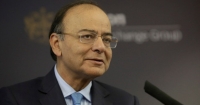Unleashing India’s textile talent
India’s textile sector is undergoing a long overdue restyling, writes India Inc. Founder & CEO Manoj Ladwa. The Indian textiles industry is a $100-billion giant, which employs about 50 million people, making it the country's largest employer in the organised sector. It is also one of the largest contributors to the export trade, accounting for nearly 15 per cent of India’s total exports. This 5,000 year old industry is arguably also the oldest in the world. So, it might appear [...]












